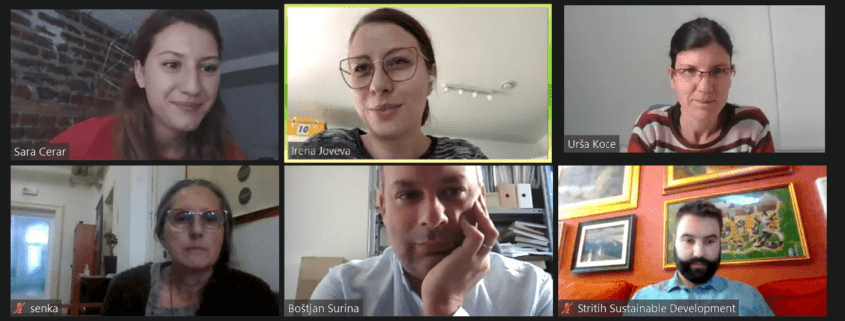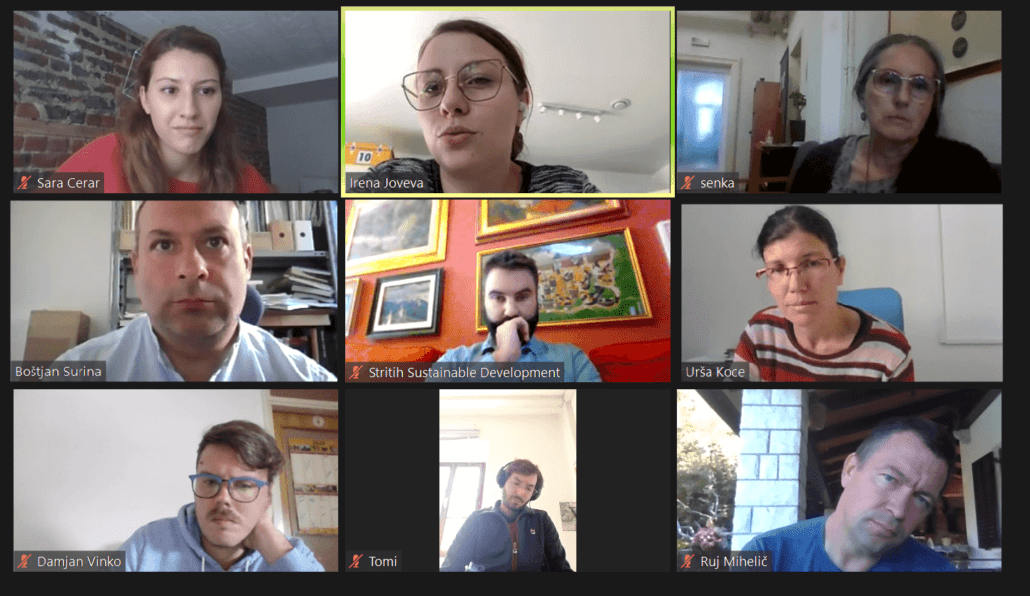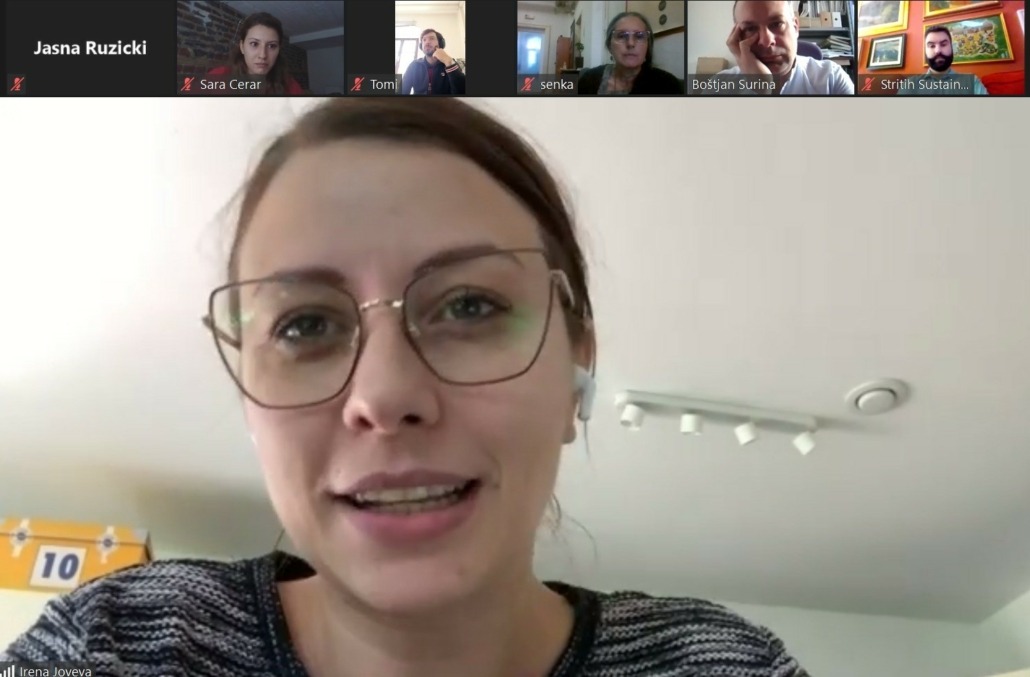On Wednesday, 30 September 2020, MEP Irena Joveva hosted an informal virtual debate with experts and NGO representatives regarding Slovenia’s strategic plan and the need for an ecological compromise to achieve climate neutrality. Joveva wanted to emphasize the importance of dialogue with the profession and the need to communicate. The environmental and climate crisis is something that concerns all of us; therefore, the decision-makers must get to know different sides and hear other opinions. Balanced compromises are the only way we will be able to achieve the goal.
Irena Joveva initially explained the current vital issues being adopted at European level, focusing on the climate law and it’s the goal of reaching climate neutrality by 2050 in the EU. Joveva advocates the ambitious but realistic intermediate goal of a 60% reduction in greenhouse gas emissions by 2030 (compared to 1990 levels).
She explained that many funds from the European budget, as well as all additional “post-corona” financial mechanisms, will be provided for the environment and nature. In her opinion, as this is a unique opportunity for Europe, funds should be provided to change the social paradigm. But one is the existence of funds, and the other is their usage: the implementation and spending will be in the hands of Member States, and it seems Slovenia does not have a general development strategy. Part of Slovenia’s plan to achieve the goal of climate neutrality is positioning of hydroelectric power plants (HPPs) and wind power plants (WPPs) into the Natura 2000 protected areas. Joveva was interested in what ecological compromise we must – if necessary – reach.
Jurij Stritih, who participated in the preparation of the environmental study for the National Energy and Climate Plan of Slovenia (NEPN) said the placement of new HPP and WPP projects in the environment is not only unnecessary but also degrading for the environment while being non-compliant with environmental legislation. According to him, the main alternative to be highlighted is solar energy, which is often not taken seriously.
A few participants pointed out that solar power plants could be very effectively installed on the roofs of industrial buildings, shopping malls and parking lots. Dr. Tomislav Tkalec (Focus Association) added that in Slovenia, there would have to be several dispersed projects in terms of solar energy, showing a significant energy effect only cumulatively, which can be an investment barrier.
Tomaž Mihelič from DOPPS (Society for the Observation and Study of Birds of Slovenia) said that in most parts of Slovenia wind power plants do not pose a significant threat to birds. There are only a few critical ridges as a result of Slovenia’s position in the European area between the Dinarides and the Southern Alps. He agreed with Stritih that it is essential to provide a study of the very few sensitive regions in Slovenia, to thoughtfully place wind powerplants into the environment without significant negative effects on birds, thus facilitating procedures for energy investors.
Boštjan Surina (Faculty of Mathematics, Natural Sciences and Information Technologies, University of Primorska) pointed out the problem of misleading and misinformation by the government and investors who want to present HPPs and WPPs to the public and local residents in the best possible light. Senka Šifkovič Vrbica, an environmental lawyer, mentioned that in the case of the construction of HPPs in the protected area, it is necessary to provide compensatory measures and provide replacement habitats. By doing so, dr. Urša Koce(DOPPS) highlighted the Brežice HPP project, which was carried out based on providing compensatory measures. Their study of the environment and the habitats created by the compensatory measures showed inefficiency of those measures. Damjan Vinko (Master of Biology, a former member of the NGO Council at the Ministry of the Environment) was critical of the possibility of prioritizing other benefits over the public benefit of nature conservation, which, according to him, can only be the exception and not the rule.
According to the participants, Slovenia lacks a long-term strategy for the future. It is crucial to establish the existence of alternatives beneficial to the economy while not having catastrophic effects on the environment and nature. They agreed there is no need to sacrifice environmental goals to achieve climate goals, as both can be achieved. Everyone also agreed with Irena Joveva that in addition to communication, transparency is crucial.






Leave a Reply
Want to join the discussion?Feel free to contribute!